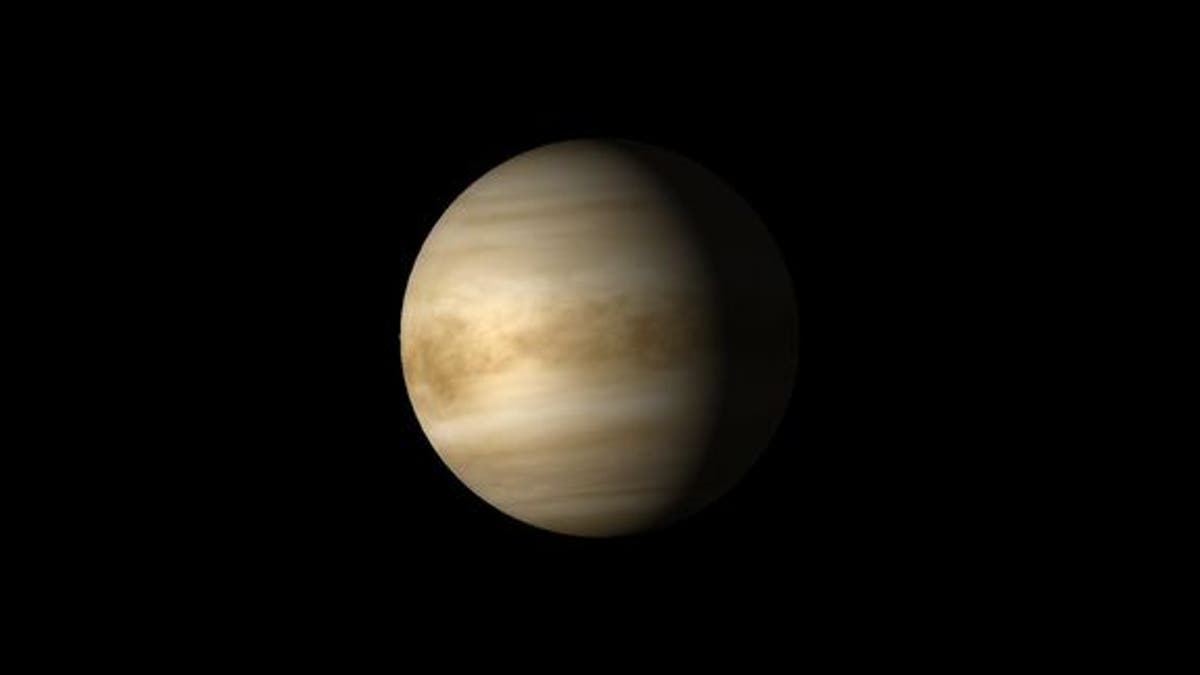
New research suggests life could exist on the cloud of Venus. (Starry Night Software)
Life could exist just one planet removed from Earth, according to new research.
A paper published last week in the peer-reviewed journal "Astrobiology" takes a look at the second rock from the Sun -- Venus -- as well as its atmosphere to expand on a decades-old theory that the planet's clouds could support microbial life.
“Together, our lines of reasoning suggest that particles in Venus’ lower clouds contain sufficient mass balance to harbor microorganisms, water, and solutes, and potentially sufficient biomass to be detected by optical methods,” the authors wrote.
Moderate temperatures and pressures, as well as the chemical makeup -- sulfur compounds, carbon dioxide and water -- of the clouds help establish an environment necessary to sustain life.
Researchers also say so-called “dark patches” in Venusian clouds, which “are made up of sulfuric acid and light-absorbing particles,” are similar to algae blooms and other bacteria found in Earth's lakes and oceans, Newsweek reports
TWO PILOTS SAY THEY WITNESSED UFO WHILE FLYING PLANE ABOVE ARIZONA, AUDIO REVEALS
Scientists have been on a mission to find evidence of extraterrestrial life for decades -- and Venus may be the perfect place to start.
The potential for Venus' clouds to hold life was first examined in the late 1960s through a series of space probes, but lead author Sanjay Limaye of the University of Wisconsin–Madison’s Space Science and Engineering Center says the planet's dark patches haven't been thoroughly explored. Instruments that have tested Venus' atmosphere in the past were "incapable of distinguishing between materials of an organic or inorganic nature," Newsweek reports.
Limaye said researchers are now considering a cloud testing method called Venus Atmospheric Maneuverable Platform (VAMP), a blimp-like aircraft that can hover over the planet's clouds for up to a year gathering samples.
“To really know, we need to go there and sample the clouds,” co-author Rakesh Mogul, a professor of biological chemistry at California State Polytechnic University, Pomona, told Newsweek. “Venus could be an exciting new chapter in astrobiology exploration.”




















